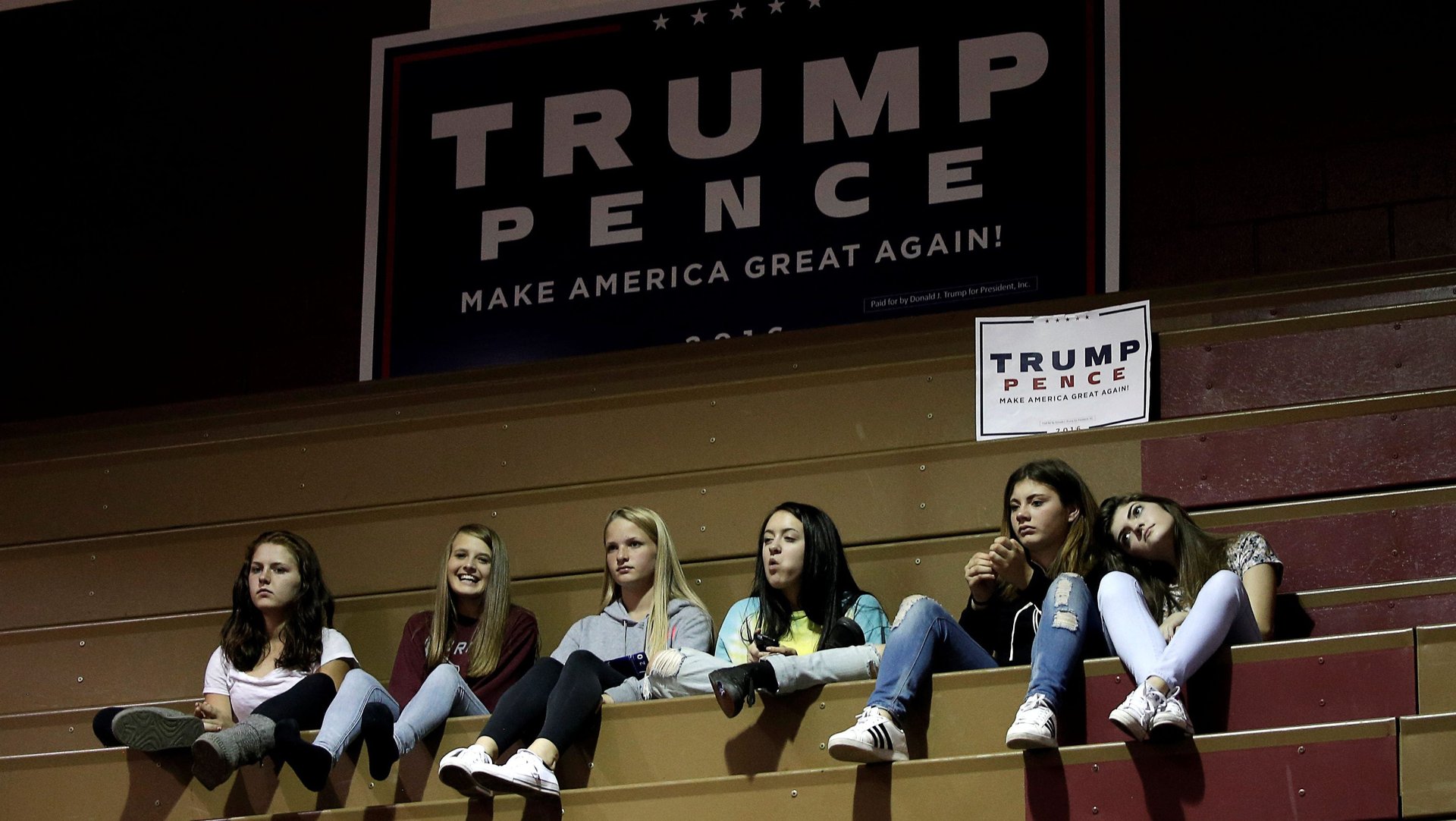Whatever Trump’s policies turn out to be, some damage can’t be undone
A month ago, I heard a word said aloud that I have only read in books and heard in movies.


A month ago, I heard a word said aloud that I have only read in books and heard in movies.
I was standing in a parking lot for a popular bagel place in a town next to my hometown in central New Jersey. The word was being hurled at my sister, and the hurler was a heavy-set white man wearing a sports jersey that matched the jersey on the woman next to him, and the shirts of all the preteen boys sitting nearby. Those children had just finished cheering ”Ching, chong! Ching, chong!” at my brother.
Were we back in eighth grade? I’m an adult. My brother has a kid. It’s 2016.
“That’s racist,” my brother said.
“Don’t say that,” my sister’s boyfriend said to the boys.
“They’re just kids,” responded the woman.
“That’s when they learn,” said my sister.
My siblings went inside, sure of their right to walk around and eat bagels without fear or intimidation.
The man in the jersey sat down with the woman, shrugged, and said, ”Well, she’s a fucking gook.”
The phrase “it’s 2016” (or “2015” or “2014” or whatever year it is) is meant to imply social progress, something like: “Hey, we’re trying to get better at this. You can’t say those things to people without repercussion anymore.” But this week Donald Trump has proven that the language of fear, exclusion, and harassment can still get you elected president of the United States.
And so the year “2016” comes to symbolize exclusion instead of inclusion, hateful rhetoric some Americans aren’t even old enough to remember, and a thick fog of fear in the streets.
Since the Republican president-elected was voted in on Nov. 8, many in the country have wondered: What will a Trump presidency look like? What will happen to my 401k? To Obamacare? To access to abortions and birth control? What will happen to our progress on climate change? What is Trump’s view on basic science research?
We don’t know yet. There’s a chance the showmanship of Trump will change now that he’s in charge; he might step in line with the establishment, or simply realize that some of his campaign trail promises are unfeasible.
But there’s one thing the president-elect can’t roll back. He gave his supporters the mandate to “make America great again,” and showed them that the way to do it was through bullying. Now, reports are popping up from across the country of supporters carrying through by harassing minority groups: black Americans, Americans who practice Islam, Americans with Chinese last names, gay Americans, American women.
This train won’t stop when Trump realizes he can’t build a wall.
In the short time that Trump has been president-elect, American parents have reported disturbing incidences of harassment and violence at their kids’ schools:
On Nov. 9, a cafeteria full of Michigan middle schoolers chanted, “Build the wall,” and someone in a Minnesota high school scrawled “fuck niggers,” “#fuckallporchmonkeys,” and “#whitesonly,” on a boys’ bathroom door. A woman wearing a hijab reported that she was assaulted in a parking lot in California.
Citizens who feel frustrated by the nation’s growing movement to call out privilege, acknowledge the country’s racist history, and celebrate multiculturalism, are acting out. Those who resent having to think twice about what they say now may feel more confident to say and do what they want, led by the example of the most powerful man in the country.
Racism in the United States runs deep; we can’t predict that Trump’s presidency will cause more discrimination in the next four years than in the last. Hate crimes overall in the country remained steady from before president Obama was elected, and black Americans have remained the most targeted race group by far. At the same time, there is evidence that hate crimes rise in response to the national mood: Attacks on American Muslims were demonstratively worse after 9/11, and haven’t yet returned to pre-attack levels. This year has been the worst since 2001.
What should have been an isolated incident in a bagel shop parking lot now seems like it could become the norm in a town that went Trump on Tuesday.
Recent Trump-branded hate speech surely come from a minority of supporters. The KKK is only one of many groups that endorsed him. Considering how broad Trump’s popularity has proven to be, it’s unthinkable that all the people who voted for him are genuinely racist, or genuinely think that references to industrial-grade ovens in which to put non-white Americans are acceptable.
But to a kid in the street, does it really matter?